Invest Economic

How does the lack of women's education impact economic development ?
This essay discusses the impact of lack of women's education on economic development. It emphasizes that educated women are more likely to participate in the workforce, earn higher wages, and invest in their families and communities. Educated women are also more likely to start businesses and contribute to innovation and entrepreneurship. The lack of women's education leads to lower labor force participation, uneducated women earn lower wages and have limited career growth opportunities, limited access to credit and financial services makes it difficult for women to start businesses or invest in their communities, and reduced innovation and entrepreneurship hinders economic development. Therefore, investing in women's education is essential for promoting economic growth and development.

Is it a good time to invest in gold ?
Investing in gold is a popular choice for many investors, but whether it is a good time to invest depends on various factors such as market conditions, economic indicators, and personal financial goals. Market conditions are influenced by supply and demand, geopolitical events, and monetary policies. Economic indicators like inflation rates, interest rates, and economic growth can also impact the appeal of gold as an investment. Personal financial goals should also be considered, including diversification, long-term investment, and risk tolerance. It is important to assess individual circumstances and risk tolerance before making any investment decisions, and consulting with a financial advisor can provide valuable guidance tailored to specific needs and objectives.

How can I invest in stocks with a minimal risk ?
How to Invest in Stocks with Minimal Risk Investing in stocks can be risky, but there are strategies to minimize these risks. Diversification across stocks, sectors, and asset classes is crucial. Dollar-cost averaging helps smooth market fluctuations. Stop-loss orders limit potential losses. Long-term investing allows for market recoveries. Understanding the companies you invest in reduces unknown risks. Start small and learn as you go, staying informed about financial news. Working with a financial advisor can provide personalized guidance. Remember, no investment is completely risk-free, so assess your comfort level before making decisions.

What impact does consumer confidence have on economic recovery ?
Consumer confidence is a key driver of economic recovery. It stimulates growth, boosts employment rates, reduces unemployment, and increases government revenue. To improve consumer confidence, governments should encourage stable economic policies, provide financial education, promote transparency, and invest in infrastructure.

What is the best way to invest in gold ?
This article explores the best way to invest in gold, discussing why one might want to consider adding gold to their portfolio and outlining different ways to invest in gold, such as physical gold, gold stocks and mutual funds, gold ETFs, and gold futures and options. The advantages and disadvantages of each method are discussed, and it is emphasized that the best way to invest in gold depends on individual investment goals, risk tolerance, and personal preferences.

How can we balance economic development and water resource protection ?
Water resources are crucial for economic development but must be protected to ensure sustainability. Strategies for balancing these goals include prioritizing sustainable practices, implementing regulatory measures, fostering collaboration and partnerships, investing in infrastructure and technology, and educating and creating awareness. By adopting these approaches, we can achieve a balance between economic growth and water conservation, ensuring long-term sustainability for all.

How do I invest in the stock market ?
The text provides a step-by-step guide on how to invest in the stock market. It emphasizes the importance of education, determining investment goals, choosing a strategy, opening a brokerage account, selecting investments, monitoring them, and maintaining patience and discipline. The process involves learning about different types of stocks, understanding risks, diversification, and risk management. It also includes researching brokerage firms, funding an account, choosing individual stocks or mutual funds based on company performance, and staying informed about market changes. Overall, the text encourages potential investors to approach stock market investing with careful planning and research to achieve their financial goals over time.
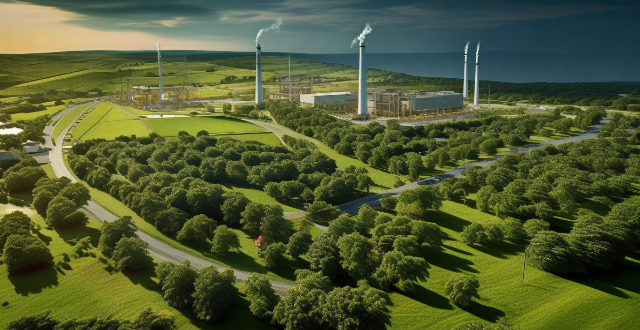
How can we balance economic growth with environmental sustainability ?
Balancing economic growth with environmental sustainability requires a multifaceted approach that includes promoting green infrastructure and renewable energy, encouraging sustainable business practices, fostering innovation and technology development, educating and engaging stakeholders, and implementing policies and regulations. By taking these steps, we can create a more sustainable future where economic prosperity coexists with environmental well-being. Achieving this balance will require ongoing effort from all sectors of society, including governments, businesses, communities, and individuals alike.

How do I adjust my investment strategy during economic downturns ?
Adjusting Investment Strategy During Economic Downturns: - **Diversify Your Portfolio**: Allocate across stocks, bonds, and cash equivalents; invest in different sectors and international markets. - **Rebalance Your Portfolio**: Monitor performance and composition regularly; rebalance to maintain diversification. - **Focus on Quality Stocks**: Choose companies with strong financials, stable earnings, and resilient business models. - **Consider Bonds and Other Fixed Income Securities**: Invest in government, corporate, or municipal bonds for stability and potential returns. - **Stay Disciplined and Avoid Emotional Decisions**: Stay calm, focus on long-term goals, and avoid herd mentality.
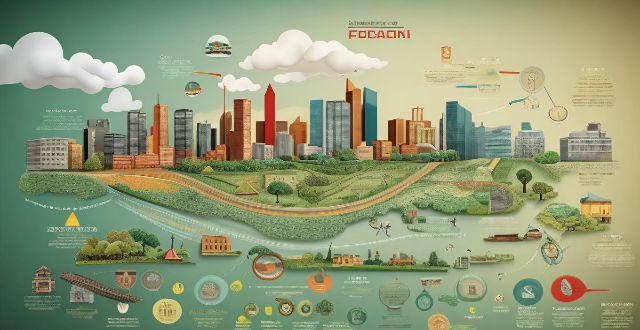
How do global economic trends affect personal wealth growth strategies ?
Global economic trends significantly influence personal wealth growth strategies by affecting factors such as interest rates, inflation, economic growth, global trade, and political stability. Understanding these trends helps individuals make informed decisions about investments and financial planning.

What are the benefits of implementing an economic stimulus plan ?
An economic stimulus plan is a set of policies designed to boost a country's economy during times of slow growth or recession. These plans are typically implemented by governments and can have a range of benefits, including increased economic activity, improved employment rates, stimulated investment, reduced inflation risk, and improved public services. By taking steps to boost the economy during times of slow growth or recession, governments can help to create a more stable and prosperous future for all citizens.

What is the outlook for the European Union's economic recovery ?
The economic recovery of the European Union (EU) depends on political stability, global economic conditions, and domestic policies. Unity among member states and effective governance are crucial for managing crises and implementing growth-promoting policies. Global trade dynamics and supply chain disruptions also play a significant role. Domestically, fiscal stimulus, structural reforms, and a balanced green transition are key. The outlook is optimistic but uncertain, with many influencing factors.
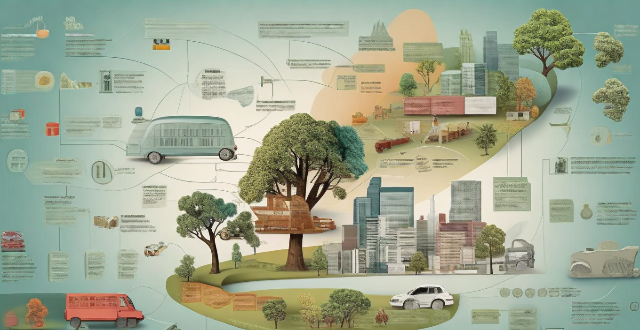
What is an economic stimulus plan ?
An economic stimulus plan is a government policy aimed at boosting a country's economy during times of slow growth or recession. The primary goal of such plans is to increase consumer spending, encourage business investments, and create jobs, thereby stimulating economic activity and promoting overall growth. Key features of an economic stimulus plan include tax cuts and rebates, government spending on infrastructure projects, monetary policy adjustments, direct assistance to businesses and individuals, and incentives for investment. Benefits of an economic stimulus plan include increased economic growth, job creation, long-term gains, and reduced poverty rates. However, potential downsides of an economic stimulus plan include national debt, inflation risks, crowding out effect, and short-term vs long-term effects. In conclusion, an economic stimulus plan is a multifaceted approach employed by governments to revive flagging economies. While these plans can have significant positive impacts on growth, employment, and overall well-being, they must be carefully designed and implemented to minimize potential drawbacks such as increased national debt and inflation risks.

How can we balance public health concerns with economic recovery during pandemic management ?
Balancing public health concerns with economic recovery during pandemic management involves implementing widespread testing, efficient contact tracing programs, vaccination campaigns, and clear public health messaging. It also requires targeted restrictions, financial aid, adaptive workplaces, infrastructure investments, and building consumer confidence. Long-term planning includes strengthening health systems, fostering economic diversification, investing in research and innovation, and creating emergency funds. Collaborative governance through intersectoral collaboration, global cooperation, and stakeholder engagement is essential for navigating the dual challenge of protecting public health while fostering economic stability and growth during a pandemic.

How do climate change negotiations affect global trade and economic systems ?
Climate change negotiations play a crucial role in shaping global trade and economic systems. These negotiations aim to find solutions to the challenges posed by climate change, such as reducing greenhouse gas emissions, promoting renewable energy sources, and protecting biodiversity. The outcomes of these negotiations have far-reaching implications for international trade, investment, and economic development. In this article, we will explore how climate change negotiations affect global trade and economic systems. One of the key impacts of climate change negotiations on international trade is the imposition of tariffs and subsidies on goods and services that contribute to climate change. For example, countries may impose higher tariffs on imported goods that are produced using high levels of carbon emissions or other environmentally harmful practices. Similarly, governments may provide subsidies to domestic industries that adopt sustainable practices or invest in renewable energy technologies. These measures can create trade barriers and distort market competition, affecting global trade patterns. Another way in which climate change negotiations can influence international trade is through the implementation of carbon pricing mechanisms, such as carbon taxes or cap-and-trade systems. These mechanisms aim to internalize the external costs of carbon emissions by making polluters pay for their emissions. As a result, companies that rely heavily on fossil fuels or produce high levels of emissions may face increased costs, making their products less competitive in global markets. On the other hand, companies that invest in low-carbon technologies or adopt sustainable practices may gain a competitive advantage. Climate change negotiations often lead to the adoption of stricter environmental standards and regulations at both national and international levels. These standards can affect international trade by creating compliance costs for exporters and importers. For instance, companies that export goods to countries with stringent environmental regulations may need to invest in cleaner production processes or face penalties for non-compliance. Similarly, importers may prefer to source goods from suppliers that meet certain environmental standards, affecting trade flows and market access. Climate change negotiations also have significant implications for investment and economic development. As countries commit to achieving ambitious climate targets, there is an increasing demand for green finance and investment in sustainable projects. This can create new opportunities for investors and businesses that focus on renewable energy, energy efficiency, and other low-carbon sectors. However, it can also lead to capital flight from traditional fossil fuel industries, affecting economies that rely heavily on these sectors. Climate change negotiations often include provisions for technology transfer and innovation cooperation between developed and developing countries. This can help bridge the gap between countries with different levels of technological capabilities and promote sustainable development worldwide. By facilitating the transfer of clean energy technologies and supporting research and development efforts, climate change negotiations can foster economic growth and job creation in emerging markets. Finally, climate change negotiations address the urgent need for adaptation financing and support for vulnerable communities affected by climate change. This includes funding for infrastructure improvements, disaster risk reduction, and other measures that help countries adapt to changing climate conditions. While these efforts are essential for protecting human lives and livelihoods, they also represent significant economic opportunities for businesses involved in climate resilience and adaptation services. In conclusion, climate change negotiations have far-reaching implications for global trade and economic systems. By imposing tariffs and subsidies, implementing carbon pricing mechanisms, setting environmental standards, promoting green finance and investment, facilitating technology transfer and innovation, and providing adaptation financing and support, these negotiations shape the future direction of international trade and economic development. As we continue to grapple with the challenges posed by climate change, it is crucial for policymakers, businesses, and civil society to work together to ensure that our responses to this global challenge are aligned with our collective goals for sustainable prosperity.

What are the potential economic benefits of sharing climate information ?
The potential economic benefits of sharing climate information include improved decision making through better planning and management, risk assessment and mitigation, increased efficiency and productivity, innovation and new business opportunities, and growth of the green economy. By leveraging this information effectively, businesses, governments, and individuals can adapt to changing climatic conditions while minimizing risks and maximizing economic gains.
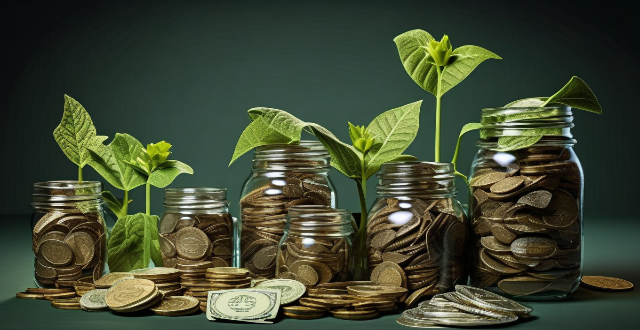
How much money should I invest in cryptocurrencies ?
Investing in cryptocurrencies has become a popular trend, but determining how much money to invest can be challenging. Factors such as risk tolerance, investment goals, market conditions, and the need for diversification should be considered before making any investment decisions. It is important to carefully consider these factors and only invest what you are comfortable losing, as investing in cryptocurrencies carries risks.
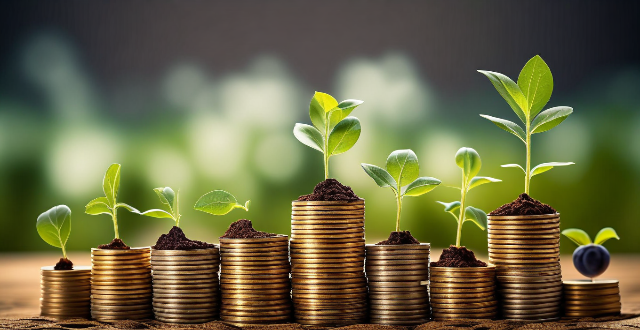
How do I invest my money wisely for long-term growth ?
Investing wisely for long-term growth involves setting financial goals, creating a diversified portfolio, considering risk tolerance, investing for the long-term, and monitoring investments regularly.

In what circumstances is an economic stimulus plan most necessary ?
An economic stimulus plan is most necessary during times of recession, slow economic growth, high unemployment rates, or financial crisis. These plans can help to boost economic activity, create jobs, and stabilize the financial system by implementing policies such as increasing government spending, reducing taxes, providing subsidies to businesses, encouraging investment in new technologies, expanding access to credit, investing in infrastructure projects, offering tax incentives for hiring new employees, and implementing regulatory reforms.
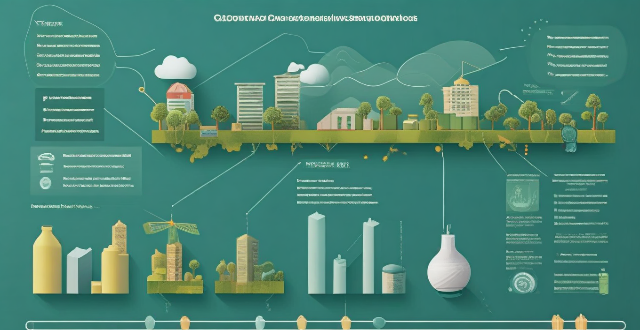
How can individuals invest in clean energy projects ?
Investing in clean energy projects is a way to support sustainable development and fight climate change. Individuals can invest through renewable energy mutual funds, green bonds, direct investment in clean energy companies, community solar projects, and sustainable real estate investments. Examples include iShares Global Clean Energy ETF (ICLN), Toyota Green Bond, and Eco-friendly apartment complexes.
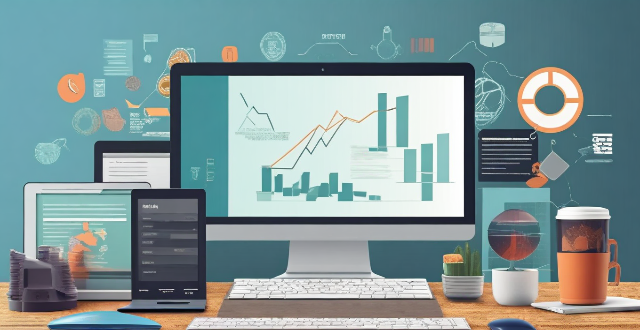
What is the best cryptocurrency to invest in ?
The article provides a summary of the best cryptocurrencies to invest in, including Bitcoin (BTC), Ethereum (ETH), Binance Coin (BNB), and Cardano (ADA). It highlights the pros and cons of each cryptocurrency, such as high liquidity and widespread adoption for Bitcoin, smart contract functionality and a large developer community for Ethereum, usefulness on the Binance exchange and a burn mechanism for Binance Coin, and a strong academic foundation and focus on security and sustainability for Cardano. The conclusion emphasizes the importance of considering factors such as liquidity, adoption, and potential for growth when choosing a cryptocurrency to invest in, and encourages readers to do their own research before making an investment decision.
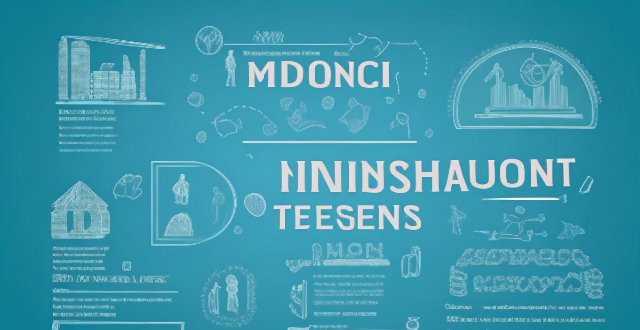
What is the relationship between interest rates and economic indicators ?
The text discusses the impact of interest rates on economic indicators such as inflation, unemployment, and GDP. It explains how higher interest rates reduce inflation and slow down economic growth by decreasing consumer spending and business investments, while lower interest rates stimulate borrowing, consumption, and investment, leading to increased inflation and economic growth. The article emphasizes the crucial role of interest rates in managing the economy effectively.

What are the key indicators of economic recovery ?
Economic recovery is a complex process that involves several key indicators. These indicators are used to gauge the health and growth of an economy after a period of decline or recession. Some of the most important indicators of economic recovery include GDP growth, employment rates, consumer spending, business investment, the housing market, inflation rates, trade balance, and stock market performance. Each of these indicators provides valuable insights into the overall health and growth of an economy.
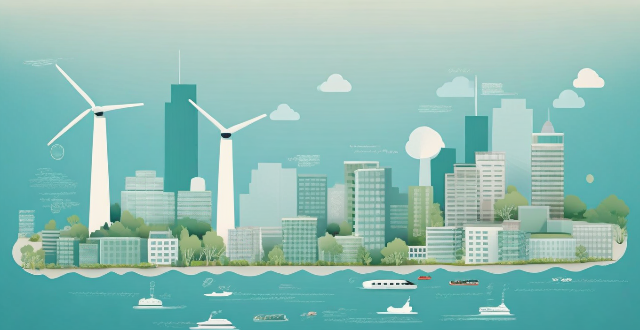
What are the economic implications of a climate emergency ?
The climate emergency, primarily caused by human activities, has significant economic implications affecting various sectors of the global economy. These include impacts on natural resources such as water scarcity, soil degradation, and energy supply; loss of biodiversity affecting ecosystem services and tourism; reduced crop yields and livestock production affecting agriculture and food security; risks to infrastructure and urban areas from flooding and heat waves; direct and indirect effects on human health; and broader impacts on global economic growth and international trade. Addressing these challenges requires coordinated efforts from governments, businesses, and individuals around the world to reduce greenhouse gas emissions and adapt to the changing climate.

How can climate and environmental policies be designed to promote sustainable economic growth ?
This text discusses the integration of environmental considerations into economic planning, promoting renewable energy sources, encouraging energy efficiency, supporting green infrastructure, promoting circular economy practices, strengthening environmental regulations, and fostering international cooperation to promote sustainable economic growth.

What are the economic consequences of climate change ?
The article discusses the economic consequences of climate change, including its impact on agriculture, tourism, energy, and infrastructure. In agriculture, decreased crop yields, loss of biodiversity, and increased extreme weather events can lead to higher food prices and reduced agricultural income for farmers. In tourism, loss of natural attractions, changes in seasonality, and health risks can result in reduced tourism revenue for affected regions. In energy, increased demand for cooling systems, disruption of energy production facilities, and transition to renewable energy sources can create new economic opportunities but also require significant investment and adaptation. In infrastructure, damage to critical infrastructure like roads, bridges, and buildings can result in costly repairs and replacements for governments and private sector organizations. Addressing these challenges requires coordinated action by governments, businesses, and individuals to reduce greenhouse gas emissions and adapt to the changing climate.

What is the relationship between energy prices and economic growth ?
The interplay between energy prices and economic growth is multifaceted, with each influencing the other in various ways. High energy prices can impede economic expansion by escalating production costs, diminishing consumer purchasing power, and fostering inflation. They might also spur investment in alternative energies and drive resource reallocation towards efficiency, counterbalancing some of their immediate negative impacts. Conversely, robust economic growth often amplifies energy demand, propelling prices upwards unless compensated by enhanced supply or technological advancements that boost efficiency. This intricate relationship underscores the importance of strategic policy interventions to manage energy pricing dynamics for sustainable economic development.
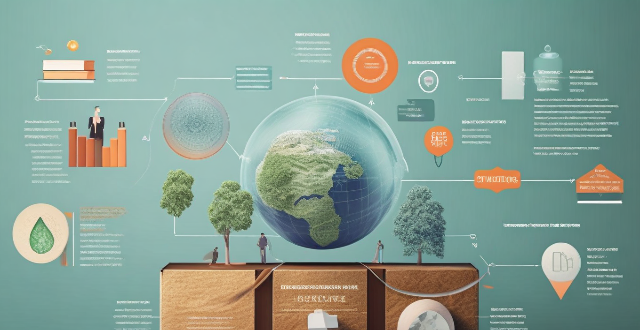
How can governments stimulate economic recovery without increasing inflation ?
Governments can stimulate economic recovery without increasing inflation by implementing a combination of fiscal policy measures, monetary policy tools, supply-side policies, and structural reforms. Fiscal policy measures include tax incentives for businesses and consumers, as well as targeted spending on infrastructure and education. Monetary policy tools involve adjusting interest rates and reducing reserve requirements to encourage borrowing and lending. Supply-side policies focus on deregulation and labor market flexibility to reduce costs and promote competition. Structural reforms aim to support education, innovation, and environmental sustainability. It is important for governments to monitor the effects of these policies and adjust them as needed to maintain price stability and economic health.

Is it safe to invest in cryptocurrency as a financial product ?
Is it safe to invest in cryptocurrency as a financial product? The answer is not straightforward, as there are both risks and potential benefits associated with this type of investment. On the one hand, cryptocurrencies are known for their high volatility, lack of regulation, and security risks, which can make them a risky investment. On the other hand, investing in cryptocurrency can potentially yield high returns, offer decentralization, and be accessible to investors. Ultimately, it is important to carefully consider the risks involved before making any investment decisions and to only invest what you are willing to lose. As with any investment, it is recommended to do your own research and consult with a financial advisor before making any decisions regarding cryptocurrency investments.

Can I invest in financial products with a small amount of money ?
Investing in financial products with a small amount of money is possible and can be beneficial for long-term wealth growth. Minimum investment requirements vary among different financial products, but options like robo-advisors, micro-investing apps, online brokerages, ETFs, and direct stock purchases allow for low minimum investments. Starting small helps manage risk, build discipline, and take advantage of compound interest. Tips for investing small include setting clear goals, educating oneself, diversifying the portfolio, considering fees and taxes, and staying patient and disciplined.